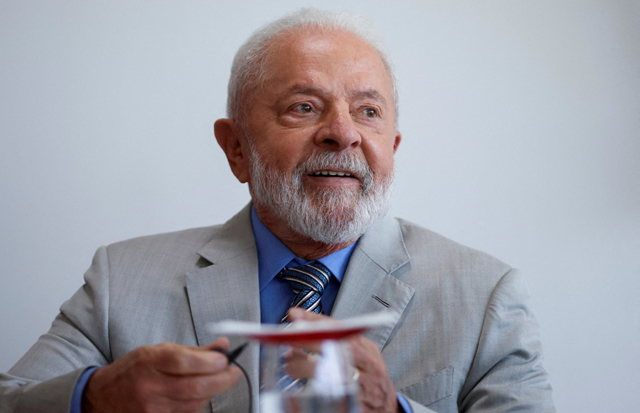
BRASILIA, Oct 21, 2023 (BSS/AFP) - Brazil's president announced on Friday that he will partially veto a bill restricting Indigenous groups' claims to ancestral lands, overriding Congress's recent approval of the legislation.
President Luiz Inacio Lula da Silva will veto a core stipulation of the bill which would have only recognized Indigenous peoples' right to claim territories they occupied or were legally disputing in October 1988, when the constitution was ratified, Minister of Institutional Relations Alexandre Padilha announced.
The land rights legislation, backed by the powerful agribusiness sector, is seen by some critics as an effort to counteract Lula's efforts to bolster environmental and Indigenous land protections, after his campaign pledge to demarcate new tribal territories.
Padilha said that the president's veto would be partial and not total as Indigenous movements had requested, with the rest of the bill signed into law.
"Everything that attacked the rights of Indigenous peoples, and which contradicted the constitution, and the recent decisions of the court, were vetoed," Padilha said.
The bill drew backlash with its 1988 "time-frame argument", or Marco Temporal thesis, which was pushed by the country's powerful farm lobby.
Indigenous groups filed a lawsuit arguing that many people had been forced from their ancestral lands, including during the military dictatorship that ruled Brazil from the 1960s to 1980s.
The Supreme Court sided with the Indigenous activists and climate campaigners last month.
But days later, Congress approved the legislation, in conflict with the court's ruling.
The president's veto will take effect after publication in the official gazette, and will be analyzed by Congress, which could still reverse it, setting up another Supreme Court challenge.
Sonia Guajajara, Brazil's first Indigenous Affairs Minister, who was appointed by Lula, called the president's move "a great victory".
"Vetoing the time frame reaffirms the Supreme Court's decision, guaranteeing the government's coherence with the Indigenous, environmental and international agenda," she said.
Many environmentalists consider the establishment of state-protected Indigenous reserves one of the best ways to fight deforestation and, with it, climate change.
According to data from Funai, a government entity that defends Indigenous populations, the reserves occupy 13.75 percent of the country's territory.
Indigenous people make up 1.7 million of Brazil's 203 million inhabitants.